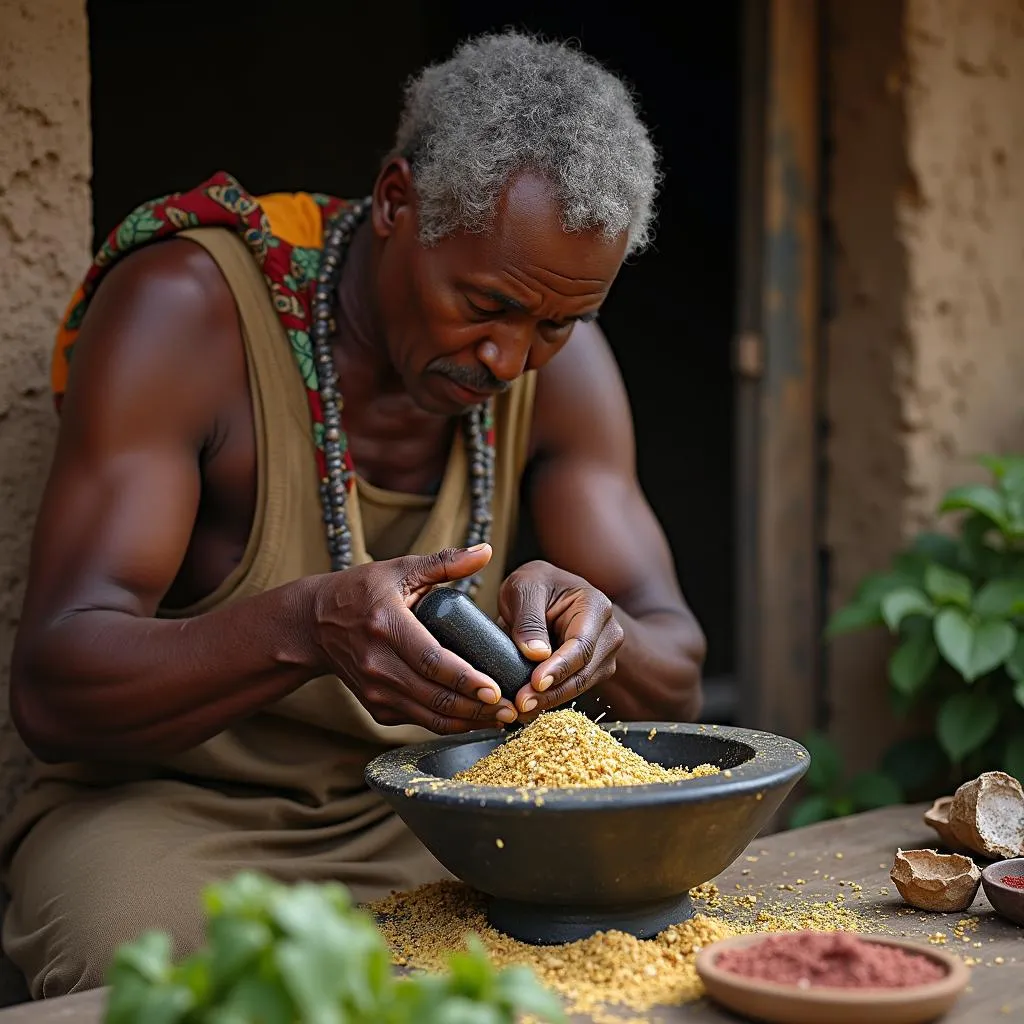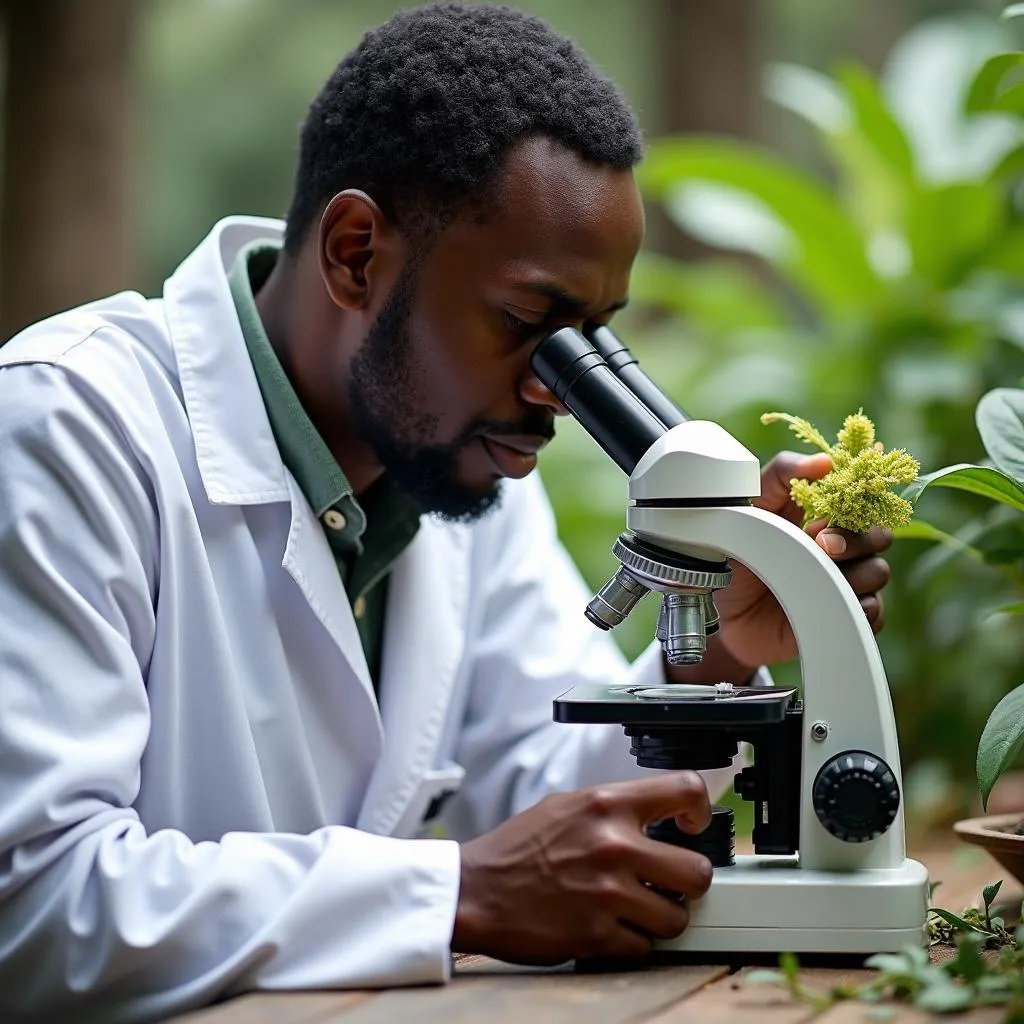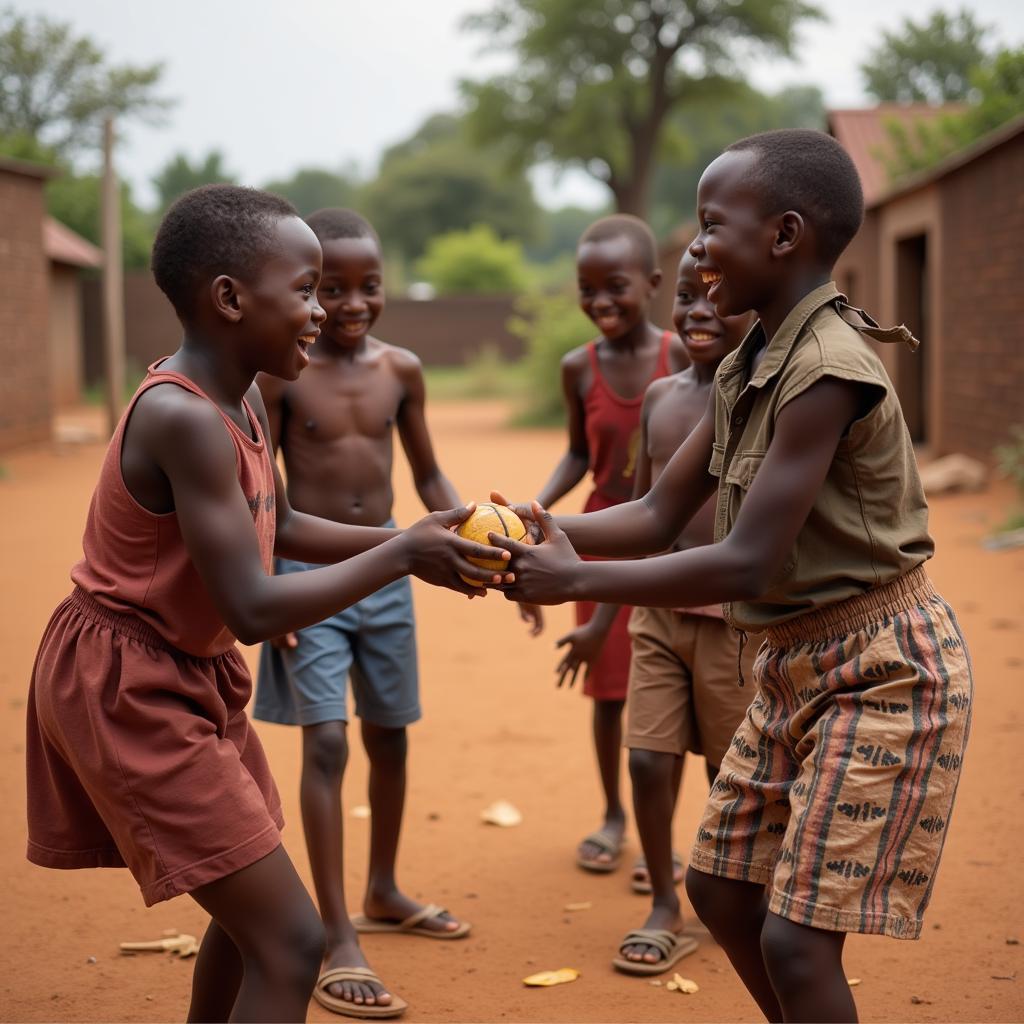Exploring the World of African Folk Medicine
African Folk Medicine, a practice deeply embedded in the continent’s cultural fabric, offers a unique perspective on healing and wellness. For centuries, communities across Africa have relied on this ancient knowledge, passed down through generations, to address their healthcare needs. This article delves into the fascinating world of African folk medicine, exploring its history, practices, and significance in the modern world.
A Legacy Woven into the Land: The History of African Folk Medicine
African folk medicine isn’t merely about remedies; it represents a holistic approach to health, intertwined with spirituality, respect for nature, and a deep understanding of the interconnectedness of all things. This tradition stretches back millennia, with roots in ancient Egyptian practices, traditional healing methods of various ethnic groups, and the wisdom of indigenous knowledge systems.
For example, the ancient Egyptians were renowned for their advanced medical knowledge, which incorporated herbal remedies, surgical procedures, and even forms of spiritual healing. These practices spread throughout the continent, influencing and merging with the healing traditions of other African cultures. Over time, each community developed its unique approach to folk medicine, reflecting their specific environment, beliefs, and social structures.
More Than Just Herbs: Understanding the Practices of African Folk Medicine
While the use of medicinal plants forms a cornerstone of African folk medicine, it encompasses much more than herbal remedies. It embraces a holistic view of health, addressing not just physical ailments but also spiritual and emotional well-being.
Key Aspects of African Folk Medicine:
- Herbalism: Utilizing plants for their therapeutic properties. This practice involves extensive knowledge of plant identification, preparation methods, and dosage.
- Spiritual Healing: Addressing the spiritual root of illnesses through rituals, ceremonies, and consultations with spiritual leaders. This aspect acknowledges the powerful connection between the mind, body, and spirit.
- Dietary Practices: Promoting health through specific diets, food combinations, and fasting. These practices often aim to restore balance and harmony within the body.
- Massage and Bone Setting: Utilizing physical manipulation techniques to alleviate pain, realign bones, and improve circulation.
 African Healer Preparing Remedy
African Healer Preparing Remedy
The Enduring Significance of African Folk Medicine
Despite the advancements in modern medicine, African folk medicine continues to play a vital role in many communities across the continent. This enduring significance can be attributed to several factors:
- Accessibility: In many regions, particularly rural areas, access to modern healthcare facilities and trained medical professionals remains limited. Folk medicine provides a readily available and affordable alternative.
- Cultural Relevance: Deeply ingrained in tradition and belief systems, African folk medicine resonates with people’s cultural identities and spiritual values. It offers a sense of familiarity and trust.
- Holistic Approach: Unlike conventional medicine, which often focuses on treating specific symptoms, African folk medicine emphasizes treating the whole person. This approach appeals to those seeking a more holistic understanding of health and well-being.
Bridging the Gap: African Folk Medicine and Modern Science
While often perceived as separate entities, African folk medicine and modern science are increasingly finding common ground. Researchers are now exploring the scientific basis for traditional remedies, investigating the properties of medicinal plants, and studying the efficacy of ancient healing practices.
This collaboration has the potential to unlock new frontiers in medicine. The vast knowledge accumulated over generations of practicing African folk medicine represents a treasure trove of potential therapeutic solutions. By studying these traditional practices through a scientific lens, researchers hope to discover new drugs, develop innovative treatments, and gain a deeper understanding of the human body and its intricate healing mechanisms.
 Scientist Studying Plant Properties
Scientist Studying Plant Properties
The Future of African Folk Medicine: Preservation and Integration
As the world becomes increasingly interconnected, it is crucial to preserve and celebrate the rich heritage of African folk medicine. This involves:
- Documentation: Recording and preserving the knowledge of traditional healers before it is lost.
- Sustainable Harvesting: Ensuring the ethical and sustainable harvesting of medicinal plants to protect biodiversity.
- Integration: Exploring ways to integrate the wisdom of African folk medicine with modern healthcare systems to provide comprehensive and culturally sensitive care.
The future of African folk medicine lies in finding a balance between preserving its traditions and integrating its valuable insights with modern scientific knowledge. This synergy holds the promise of creating a more holistic, accessible, and effective healthcare system for all.
FAQs:
1. Is African folk medicine safe?
Like any medical system, safety depends on the knowledge and experience of the practitioner and the specific remedies used. It’s crucial to consult with reputable traditional healers and be aware that some plant materials can have potent effects.
2. Can I use African folk medicine alongside conventional medicine?
It’s essential to discuss any complementary or alternative therapies with your doctor to avoid potential interactions or complications.
3. Where can I learn more about African folk medicine?
Resources include reputable online databases, books by ethnobotanists and anthropologists, and cultural centers dedicated to preserving traditional knowledge.
Need Help?
For any assistance regarding African folk medicine, feel free to reach out to us. You can contact us at:
Phone Number: +255768904061
Email: kaka.mag@gmail.com
Address: Mbarali DC Mawindi, Kangaga, Tanzania.
Our customer support team is available 24/7 to assist you.
For further exploration, we recommend these articles on our website:
We believe in fostering a deeper understanding of African culture and traditions. Join us in celebrating the enduring legacy of African folk medicine.

